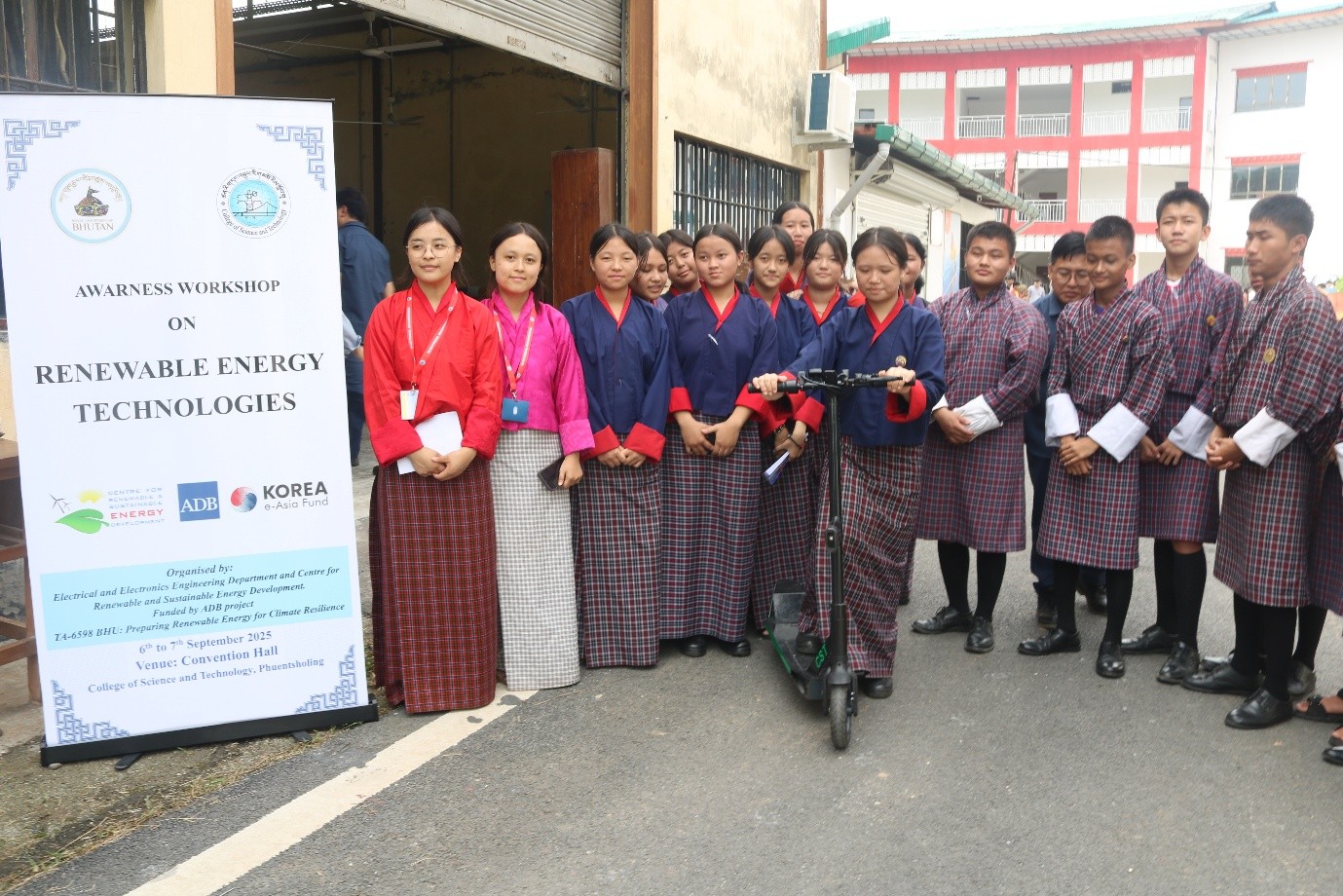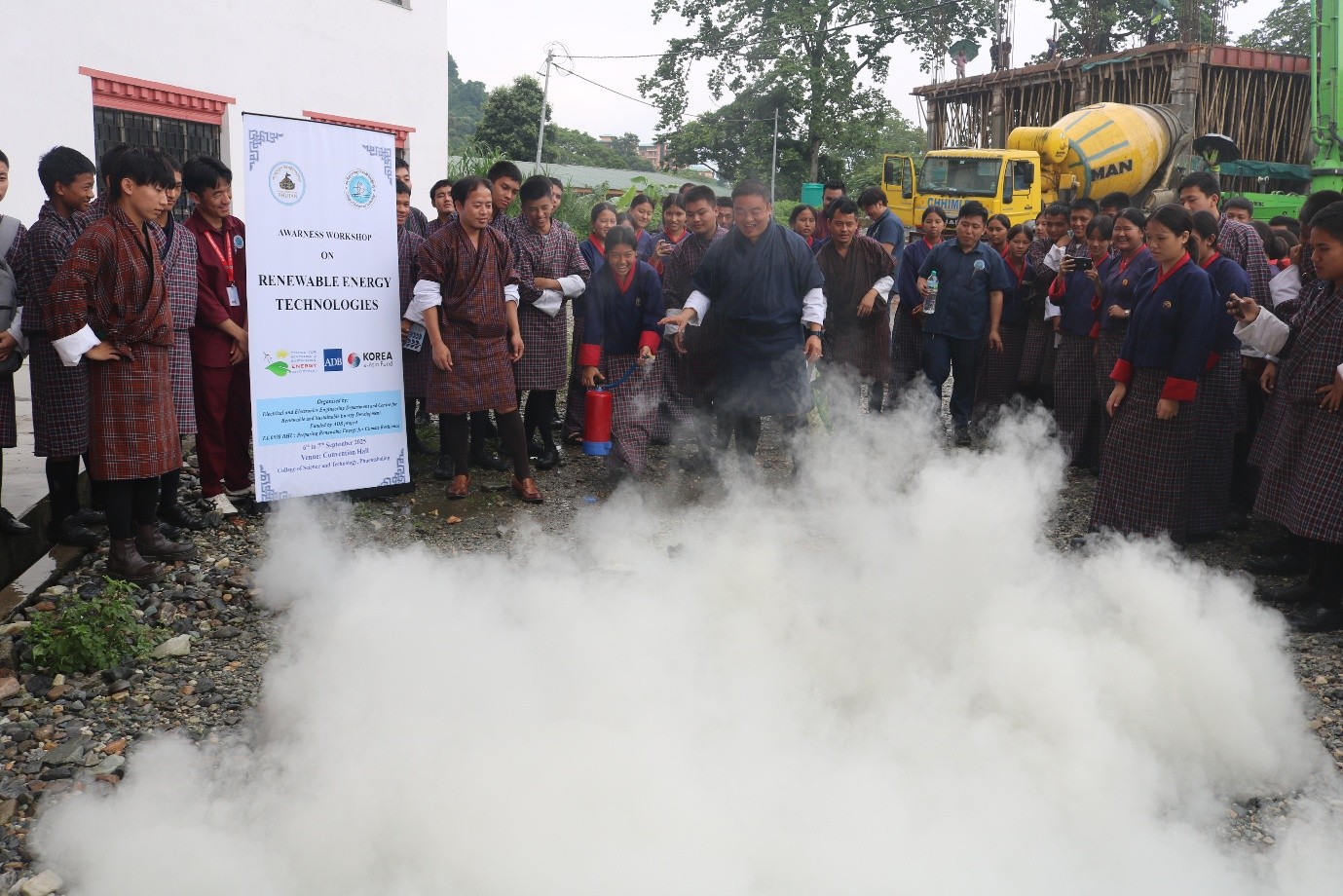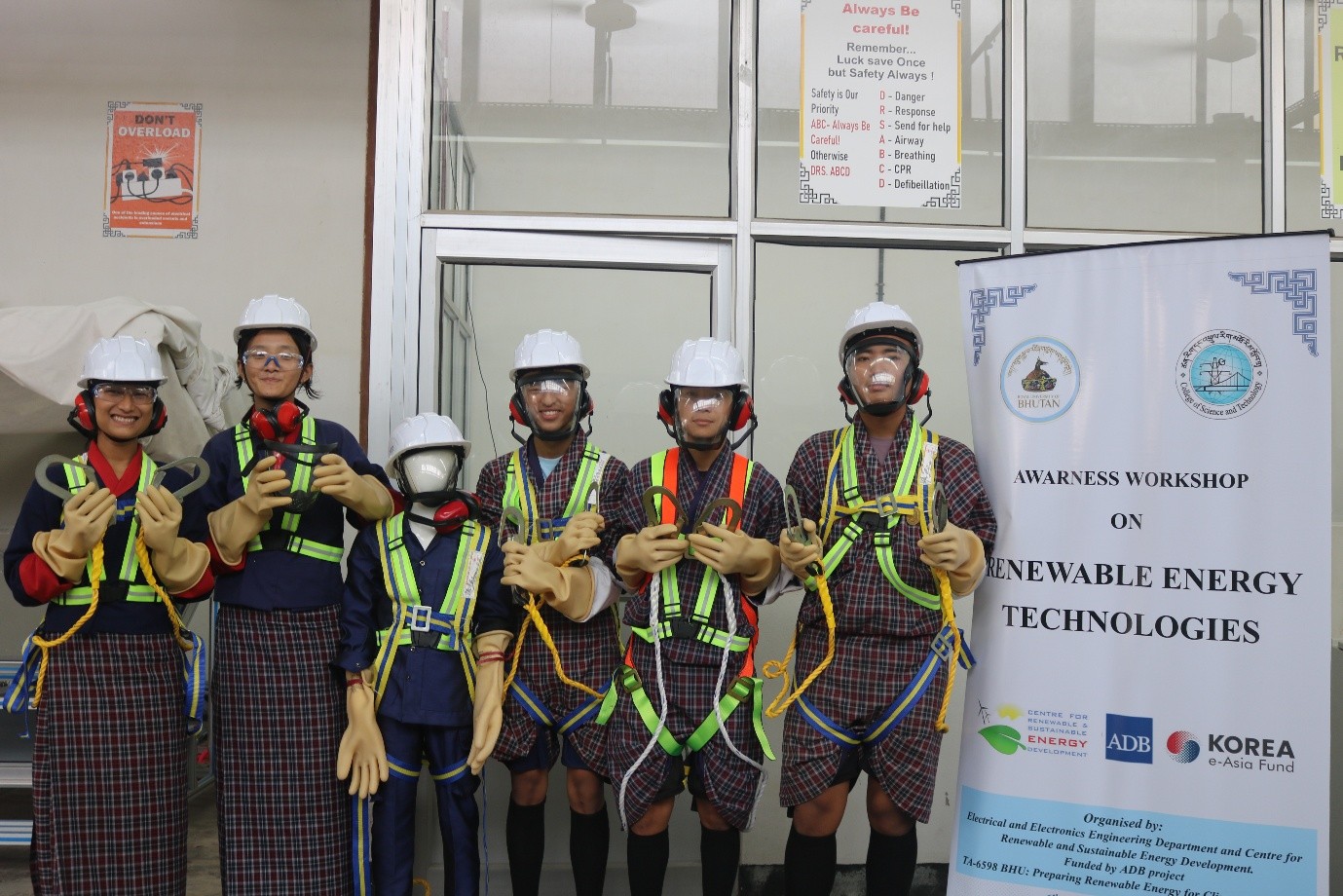 The Electrical and Electronics Engineering Department and Centre for Renewable and Sustainable Energy Development, College of Science and Technology (CST) conducted a two-day Awareness Program on Renewable Energy Technologies for students of Chumithang Middle Secondary School from September 6–7, 2025.
The Electrical and Electronics Engineering Department and Centre for Renewable and Sustainable Energy Development, College of Science and Technology (CST) conducted a two-day Awareness Program on Renewable Energy Technologies for students of Chumithang Middle Secondary School from September 6–7, 2025.
The program aimed to introduce students to the fundamentals of electricity and types of renewable energy, encourage energy-efficient practices, inspire interest in STEM education, and instill a culture of safety through training on personal protective equipment (PPE) and fire safety. It also sought to provide hands-on exposure to solar technologies, e-mobility solutions, and CST’s Renewable Energy Initiatives.
Over the two days, students engaged in interactive sessions on electricity and renewable energy, explored solar setups at CST, and participated in demonstrations of PV modules, solar powered e vehicle prototype, e-bikes, and e-bicycles. They also visited CST’s FABLAB, STAR-C, Renewable Energy Laboratories, and Sustainable Kitchen Systems, and took part in practical safety demonstrations.
Students expressed that the program broadened their knowledge of renewable energy while motivating them to pursue future opportunities in STEM fields. CST acknowledged the valuable contributions of all resource persons and technical staff in making the program successful.


------------------------------------------------------------------------------------------------------------------------------------------------------------------------------------------
 The college has conducted a comprehensive 2-day in-house training on Nature-based Solutions (NbS) in the Built Environment on 8 and 9 September 2025 for CST staff, encompassing the design of bioswales, rain gardens/bioretention, permeable pavements, green walls, and wetlands. This training program will be institutionalized and extended to other professionals within the built environment sector to enhance capacity for climate resilience. This initiative forms part of the ECRUL project, funded by GEF in collaboration with UNDP.
The college has conducted a comprehensive 2-day in-house training on Nature-based Solutions (NbS) in the Built Environment on 8 and 9 September 2025 for CST staff, encompassing the design of bioswales, rain gardens/bioretention, permeable pavements, green walls, and wetlands. This training program will be institutionalized and extended to other professionals within the built environment sector to enhance capacity for climate resilience. This initiative forms part of the ECRUL project, funded by GEF in collaboration with UNDP.









